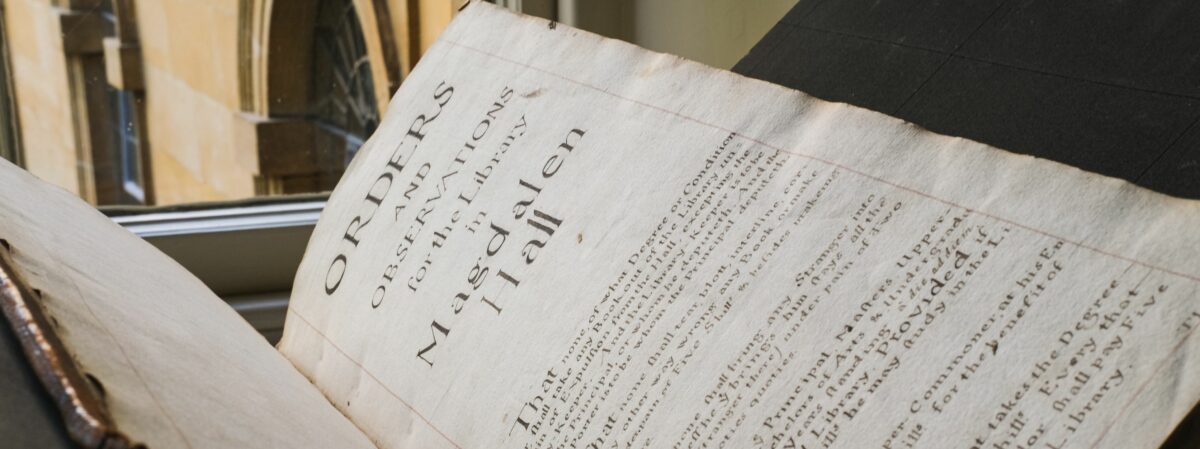Many of the books in this early library are still part of our collection today. Our current plans to rebuild the library include a purpose-built store and consultation room for our special collections.
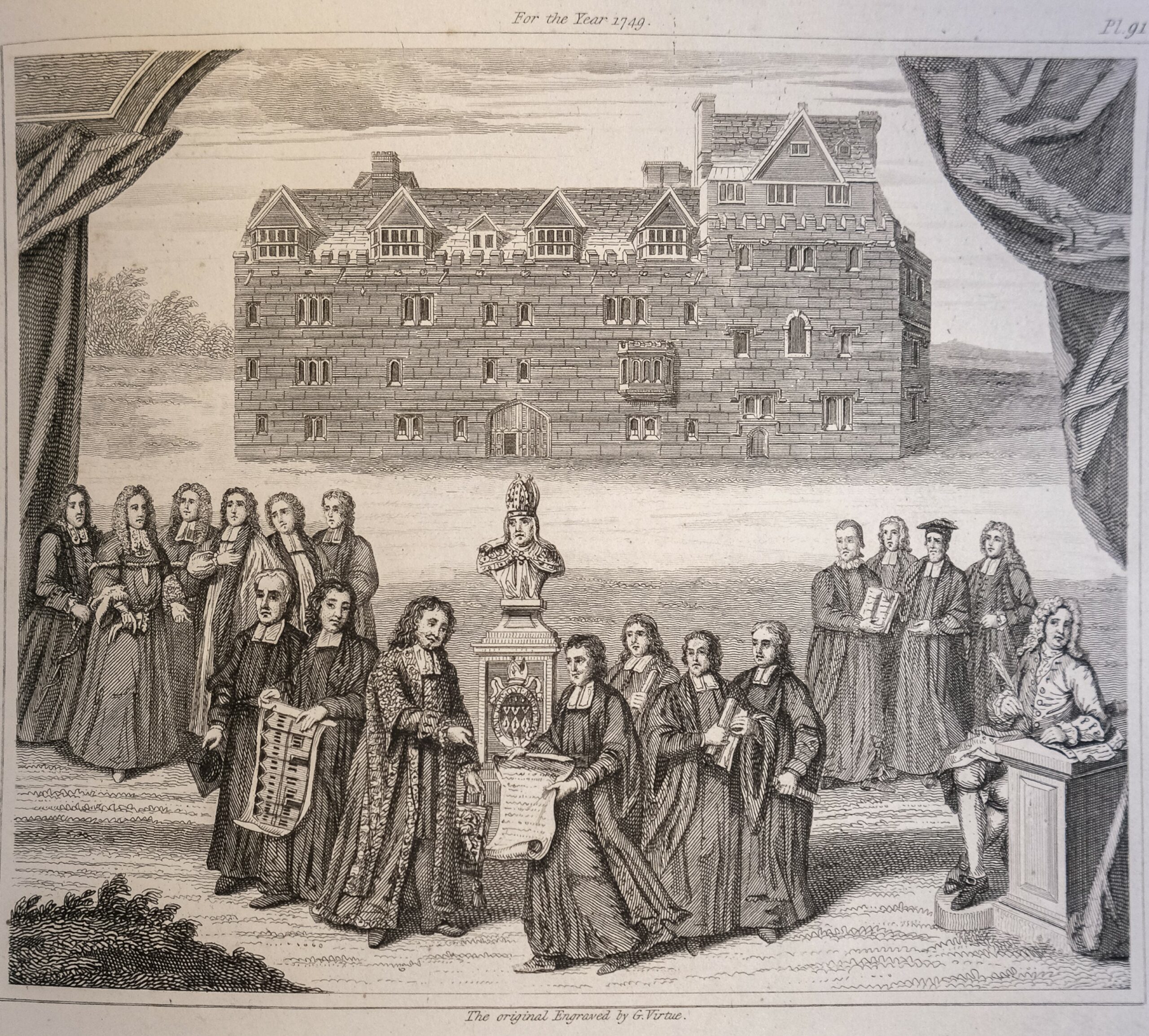
Source: Skelton, Oxonia Antiqua Restaurata (1843)
Henry Wilkinson – Principal and Librarian
Principal Henry Wilkinson (1648-1662) funded the first purpose-built library for Magdalen Hall in 1656. The library was a single book-lined room in the Hall’s original site next to Magdalen College on Oxford’s High Street. As well as donating many volumes, he also published the first printed catalogue of any Oxford college or hall library in 1661. One aim of the catalogue was to highlight what was not in the collection to encourage donations to fill these gaps.

The original library was a simple room will bookshelves around the walls. Early catalogues have been used to reconstruct the arrangement of the library using the shelfmarks. They were not ordered by subject, and larger books were chained.
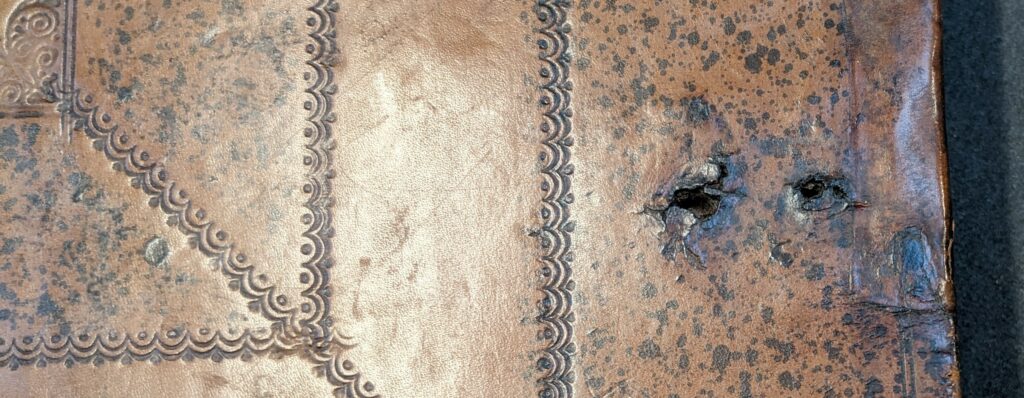
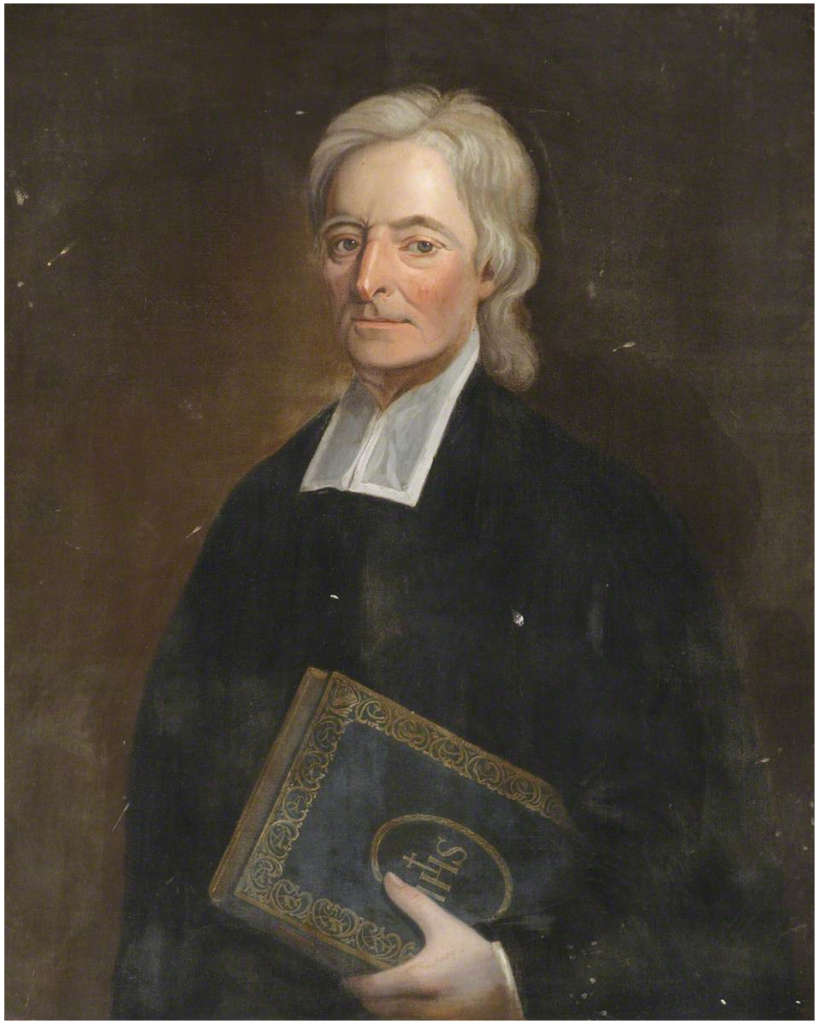
Josiah Pullen
Vice-Principal Josiah Pullen (1657-1714) continued the expansion of the library. He persuaded Hobbes to donate a copy of his works to his old hall in 1673. Pullen acted as Librarian and maintained the Benefactors’ Book – which we can see evidenced by his doodles on the end covers!
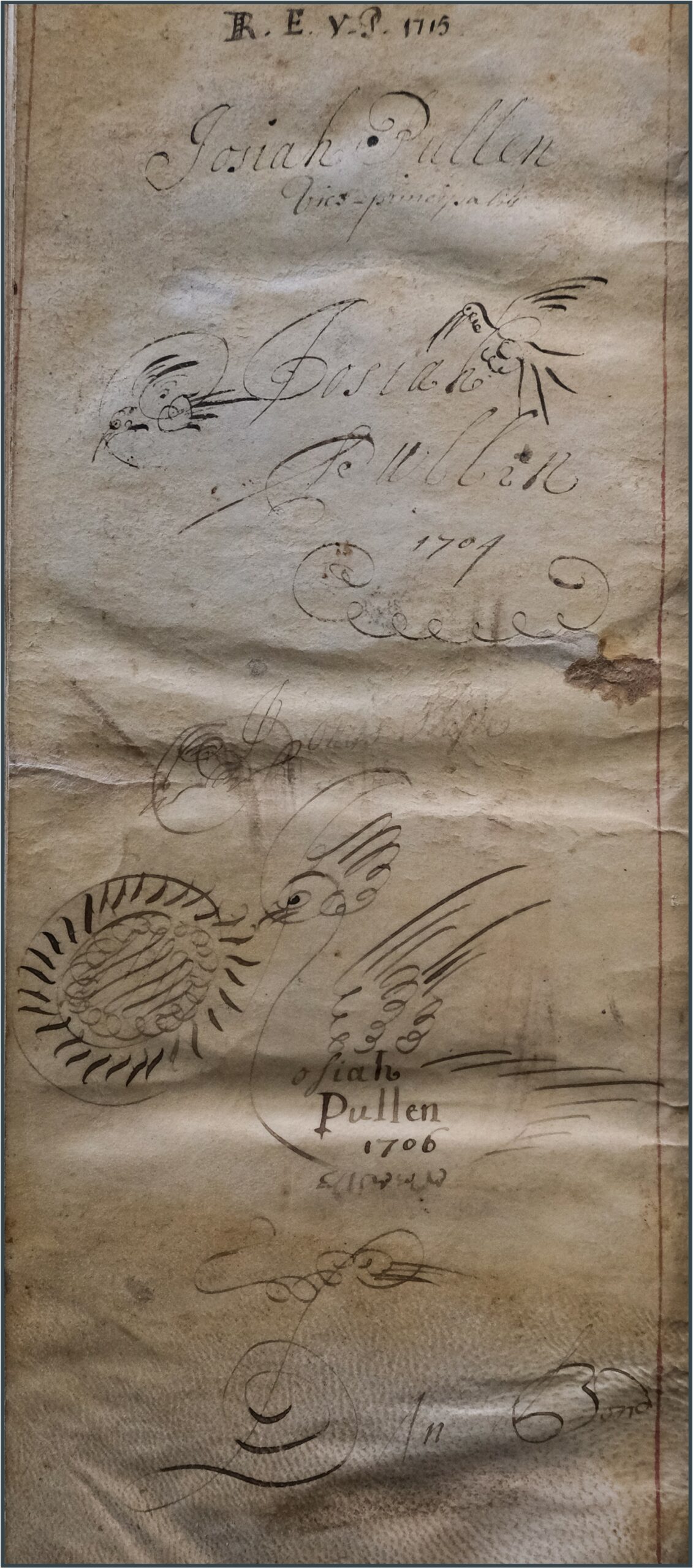
Benefactors’ Books
The Benefactors’ Books are some of the most important archival resources from Magdalen Hall. They record donations from the 1650s to 1740s of books, coins, globes, and money to the library. Both the rough (working) and fair copy are part of Hertford’s archival collections. They are regularly used to trace the provenance of books held in the collection and to trace old members of the Hall.
Rules and regulations
Both copies of the Benefactors’ Books include a set of rules for reader behaviour in the Library. There were fees for students to use the library but also strict fines or bans for failing to follow rules.
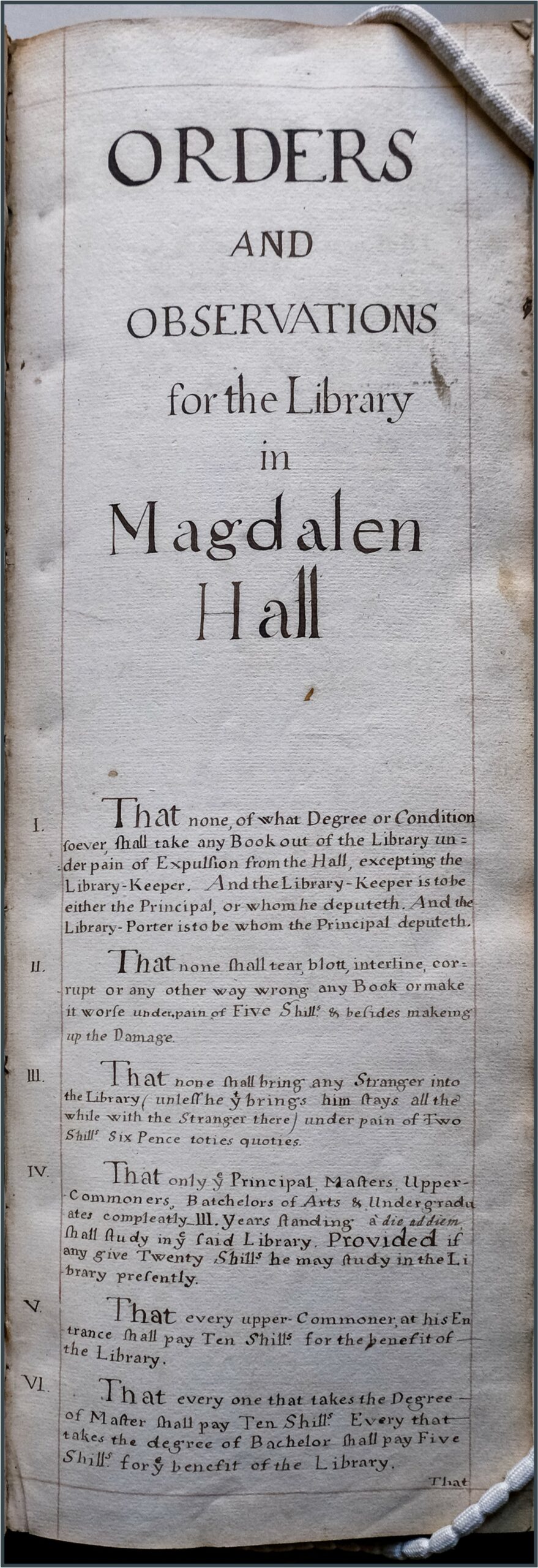
The most costly fines were for writing in or damaging books, which attracted a 5 shilling fine plus the cost of repairing damage. Similarly, bringing in candles, drinks or tobacco would result in a six month ban.
Library users were also expected to be considerate of the library as a space. They were not permitted to leave ‘strangers’ in the library, although they were allowed to bring guests if they accompanied them. They were also required to study quietly in the library and not disturb other readers.
The Benefactors’ Books are a really useful tool for understanding how the library worked in the 17th and early 18th centuries. The library relied on direct funding by students and donations of money and books from old members and colleges friends to create the collection. And yet this library has a very familiar shape which we still recognise today, with libraries continuing continue to provide a vital quiet study space and access to academic resources.
Related posts
Resources and links
Information about our upcoming library renovation project
Rare Books and Archives at Hertford
Hertford Archives’ guide to the history and records of Hart Hall, Magdalen Hall and Hertford College
Search for Hertford’s rare books on the SOLO library catalogue

